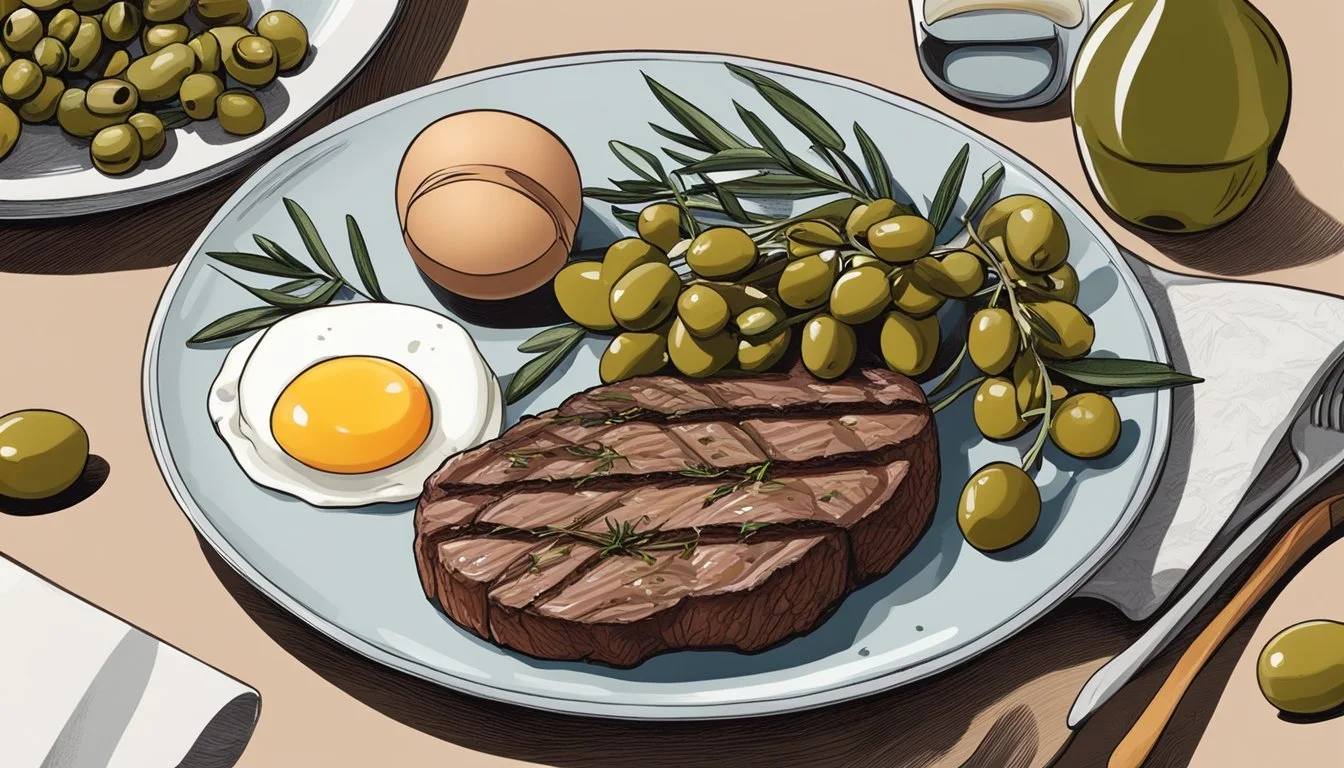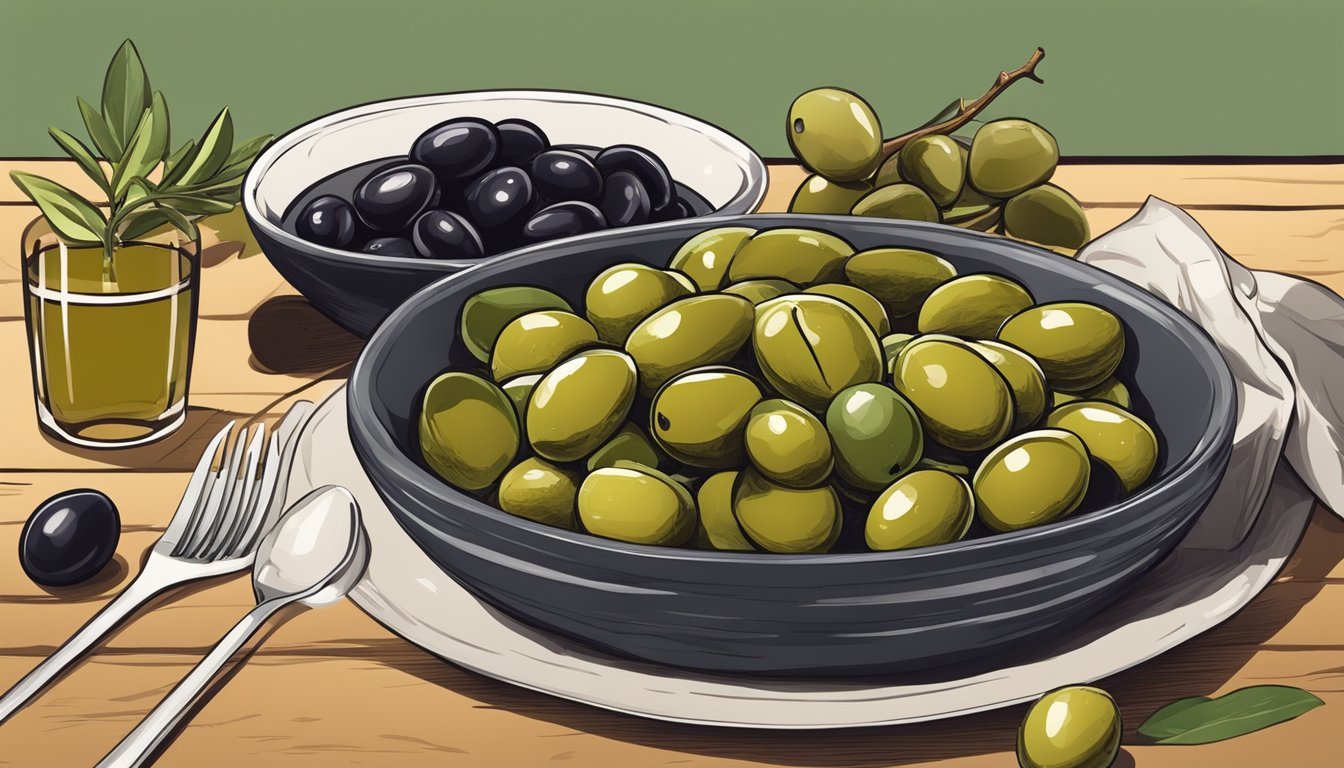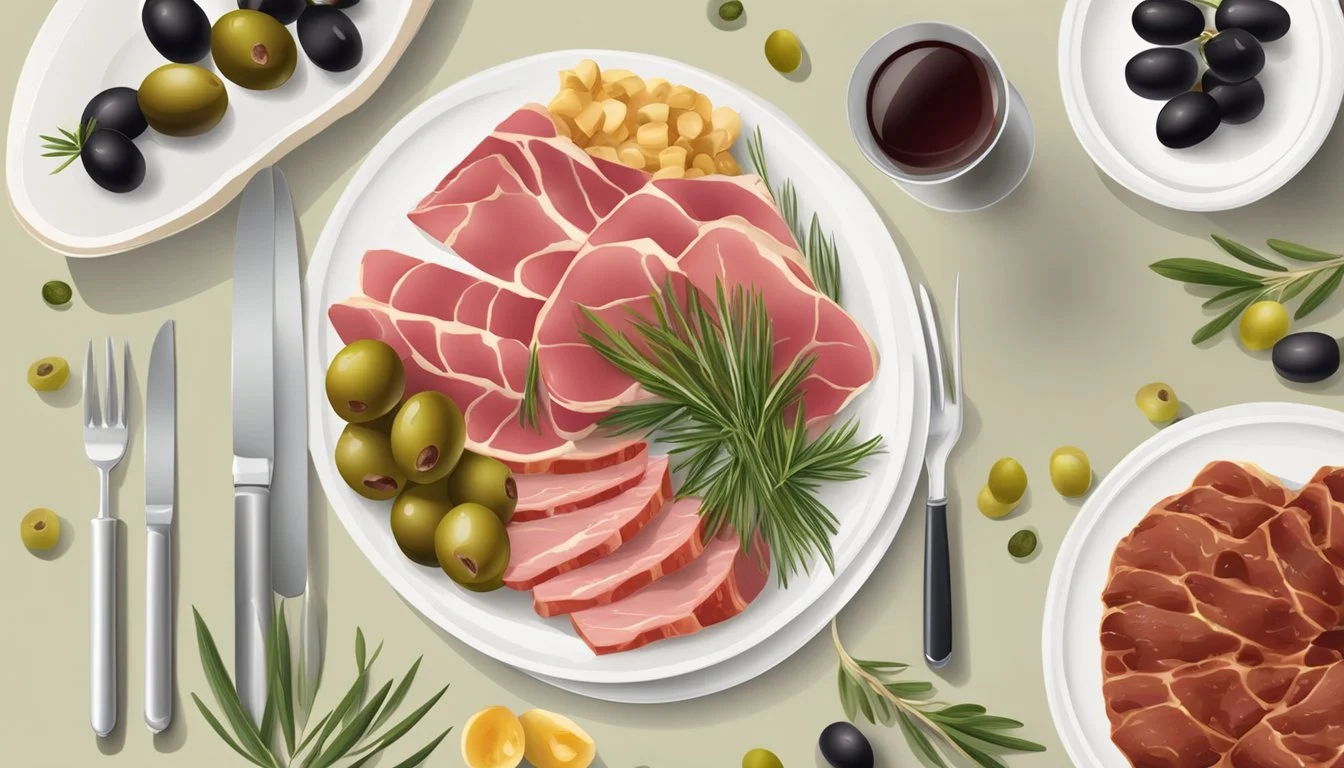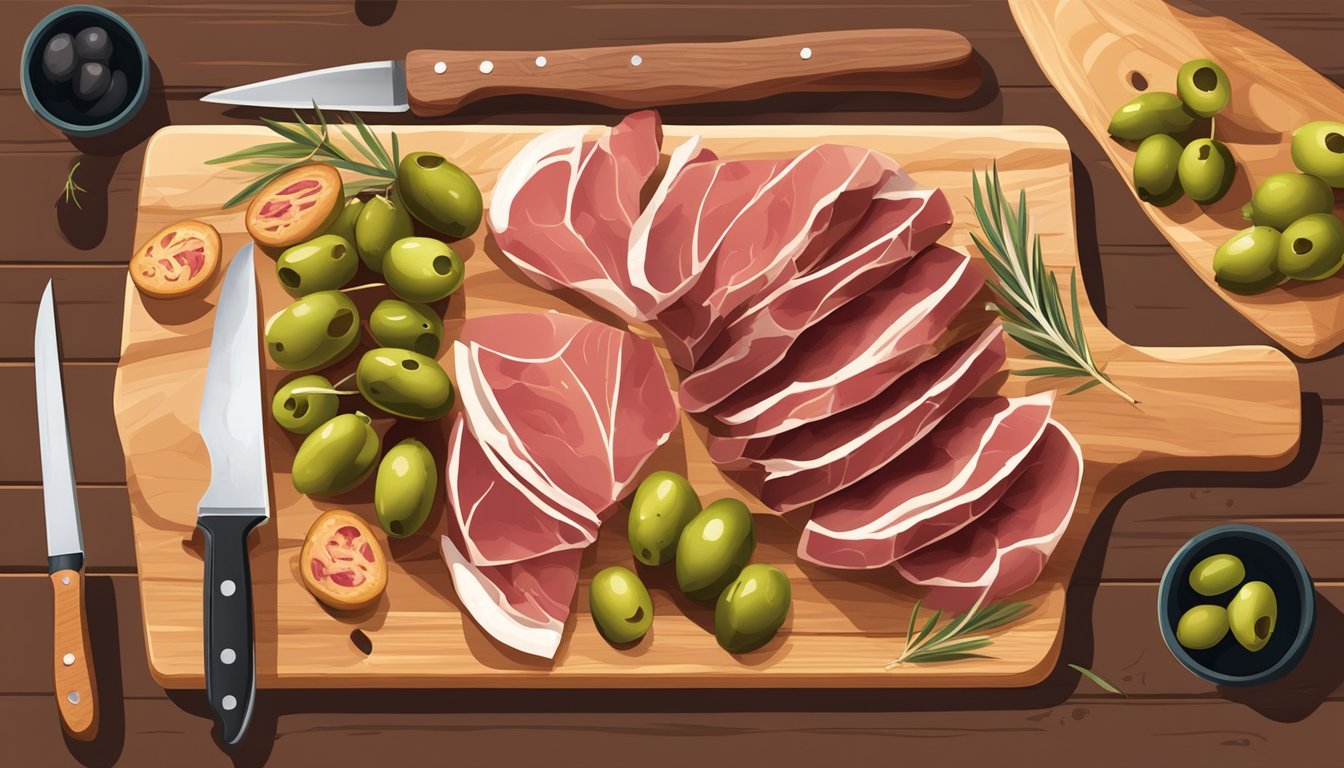Can You Eat Olives on a Carnivore Diet?
Exploring Food Choices Beyond Meat
The carnivore diet, a dietary regimen centered exclusively around animal products, often raises questions about the inclusion of specific foods not derived from animals. Individuals on this diet consume meat, seafood, eggs, and certain dairy products, emphasizing high-quality, fatty meats and seafood. This approach to nutrition is grounded in the philosophy that human physiology is optimally supported by an animal-based diet.
When considering olives, they present a clear deviation from the carnivore diet's principles. As a fruit, olives are inherently plant-based and contain carbohydrates, which are excluded from the strict interpretation of the carnivore diet. Adherents to this diet avoid olives due to their alignment with plant foods, effectively maintaining a regime devoid of any plant-derived ingredients.
However, variations exist within the diet's application, with some proponents adopting a more lenient approach that allows for minimal plant-based inclusions. In these less stringent iterations, olives may occasionally serve as a flavorful addition, provided they are consumed in modest quantities. Despite this potential flexibility, the core carnivore diet remains animal-centric, and traditional compliance excludes olives as part of its foundational guidelines.
Fundamentals of the Carnivore Diet
The carnivore diet emphasizes the consumption of animal-based foods and excludes those derived from plants, aligning with a high-protein, low-carbohydrate nutritional framework.
Core Principles
The diet is underpinned by the notion of adhering strictly to foods obtained from animals, which are considered to be the primary source of nutrients. This zero-carb diet approach eliminates the consumption of carbohydrates, aiming to reduce or eliminate sugar and fiber intake.
Allowed Foods
Meat: Central to this diet, it includes all types of muscle meat from beef, pork, lamb, and game.
Seafood: Fatty fish and shellfish provide high-quality protein and fats.
Eggs: Recognized for their protein and nutrient density.
Certain Dairy: Includes products high in fat like butter and hard cheeses.
Animal Products and Descriptions
Meat:
Description: All forms including beef, pork, and poultry
Fish & Seafood:
Description: Any, especially fatty fish such as salmon
Eggs:
Description: All types, preferable in whole form
High-Fat Dairy:
Description: Such as butter and hard cheeses
Foods to Avoid
Plant-Based Foods: All vegetables and fruits are excluded, as well as nuts, seeds, and grains. Carbohydrates: Any foods high in carbohydrates are strictly off-limits, aligning with the diet's zero-carb principle.
Foods to Exclude and Examples
Vegetables:
Examples: Leafy greens, roots
Fruits:
Examples: Apples, berries
Nuts & Seeds:
Examples: Almonds, chia seeds
Grains:
Examples: Wheat, rice, oats
Plant-Based Fats:
Examples: Oils, avocados
By maintaining these dietary restrictions, individuals on the carnivore diet aim to derive all required nutrients from animal-based sources, minimizing carbohydrate intake and focusing on high-protein and fat-rich foods.
Health Benefits and Considerations
In the context of the carnivore diet, individuals consider health benefits such as weight management and potential ketosis, alongside the assurance of nutrient sufficiency and awareness of health risks associated with a diet that excludes plant-based foods.
Ketosis and Weight Loss
The carnivore diet can lead to the metabolic state known as ketosis, where the body burns fat for energy in the absence of carbohydrates. This shift can contribute to weight loss and may be enhanced by a diet high in animal fats and proteins. However, research is ongoing to understand the long-term effects of ketosis for optimal health.
Nutrient Sufficiency
A carnivore diet predominantly consists of only meat and animal products, which are rich sources of certain nutrients like vitamins B12, A, and essential fatty acids. These foods offer an abundance of nutrients that support bodily functions, but the exclusion of plant-based foods can lead to deficiencies in other vitamins and minerals, such as vitamin C and vitamin E, which are crucial for preventing conditions like scurvy.
Make your life easier by ordering vitamin C and vitamin E, online; it's just a few clicks away!
Potential Health Risks
While a high-fat carnivore diet can aid in quick weight loss, it could also increase the risk of cardiovascular disease due to the intake of high levels of saturated fat. Additionally, the absence of fruits and vegetables means lesser intake of certain antioxidants and fiber, which may contribute to increased health risks. Nutrient deficiencies can also arise, necessitating careful planning to ensure a wide variety of animal-based foods to minimize such risks.
Carnivore Diet and Olives
The inclusion of olives in the carnivore diet is a topic of considerable debate due to their plant origin and nutritional composition. This section delves into whether olives are permissible, their nutritional content, and the role of olive oil in a diet focused predominantly on animal products.
Are Olives Permitted?
Strictly speaking, olives are not allowed on the carnivore diet. The carnivore diet is an all-animal-product diet which excludes plant-based foods. Olives, being a fruit, fall outside the diet's parameters. However, some proponents of a more relaxed carnivore approach might include olives or olive oil due to their health benefits and fat content.
Nutritional Profile of Olives
Olives contain a unique nutritional profile:
Fat: Predominantly monounsaturated fats, with oleic acid being the most prominent.
Vitamins: A source of vitamin E and various antioxidants.
Fiber: Offers dietary fiber, although its inclusion is contrary to the carnivore diet's premise.
Salt: Often preserved in salt, increasing their sodium content.
Sugar: Low in sugar, which aligns with the low-carbohydrate philosophy of the carnivore diet.
Here is a simple breakdown of the nutritional value found in a 100-gram serving of olives:
Nutrient Content
Total Fat: 11-15g
Saturated Fat: 1.4g
Monounsaturated Fat: 10g
Fiber: 3.2g
Protein: 0.8g
Carbohydrates: 6g
Vitamin E: 3.81mg (25% Daily Value)
Sodium: 1556mg
Olive Oil Consideration
While olives themselves are generally excluded, olive oil might be considered by some as a complementary fat source due to its high monounsaturated fat content. Olive oil is pure fat with no carbohydrates or fiber, and it provides a source of fat-soluble vitamins like vitamin E which can be important for overall health. However, true adherence to a carnivore diet would exclude olive oil along with olives.
Daily Meal Planning
When planning daily meals on the carnivore diet, it is essential to focus on animal-based foods only, aiming for variety and nutritional balance, especially considering organ meats for their nutrient density. Hydration should not be overlooked, with water, bone broth, tea, and coffee as suitable options.
Sample Meal Plan
Monday
Breakfast: Scrambled eggs with slices of bacon
Lunch: Beef steak with a side of bone marrow
Dinner: Grilled chicken thighs
Tuesday
Breakfast: Pork sausage patties
Lunch: Seared lamb chops
Dinner: Pan-fried salmon fillet
(This is just an illustrative meal plan, and individuals can adjust the types of meat and portion sizes according to their own needs and preferences.)
Incorporating Organ Meats
Organ meats like liver play a crucial role in a well-rounded carnivore diet due to their high vitamin and mineral content. It's advisable for individuals to include organ meats such as liver, heart, and kidney at least once a week to ensure a rich intake of iron, vitamin A, and B vitamins.
Hydration and Beverages
Hydration is paramount on any diet. Individuals should aim to drink at least eight 8-ounce glasses of water per day. Bone broth, unsweetened tea, and black coffee are also suitable for maintaining hydration while adding variety to the beverage list on the carnivore diet.
Supplementation and Alternatives
In a carnivore diet, individuals may need to consider supplementation to ensure they are receiving all the necessary nutrients, as well as identify acceptable snacks that align with the diet's principles.
When to Supplement
Supplementation might be necessary for those following a strict carnivore diet to maintain adequate levels of nutrients that are typically scarce or absent in animal products. Key supplements often include Vitamin C and certain minerals like magnesium. Some individuals may also require additional Vitamins A and antioxidants, which are abundant in plants and may be less so in animal foods. Iron levels are typically sufficient in a carnivore diet due to the high meat intake, but one should monitor their health to ensure they do not require additional iron supplements.
Acceptable Snacks
When adhering to a carnivore diet, snacks should remain animal-based. Beef jerky and cheese are popular options that provide convenience without straying from the diet. It's important to select beef jerky that is low in additives and sugar to align with the carnivore ideology. Cheese, on the other hand, offers a source of fat and can be a good option for those needing a quick and portable snack, as long as they do not have dairy intolerances or sensitivities.
Carnivore Diet Variations
The carnivore diet typically consists of exclusively animal-based foods, but variations exist that range from strict meat-only regimens to more relaxed approaches, potentially including minimal plant-based items.
Strict vs. Relaxed Carnivore
Strict Carnivore: Individuals following a strict carnivore diet consume only animal products. This includes meats such as beef, pork, and organ meats; dairy products like cheese and heavy cream; eggs; and sometimes animal-based products like honey. The strict approach prohibits all plant-based foods, including olives, as they are not considered animal-based.
Meat: Beef, pork, lamb, etc.
Organ meats: Liver, heart, kidney, etc.
Dairy: Cheese, heavy cream (limited dairy options)
Eggs: Chicken eggs, duck eggs
Seafood: Not included in the most restrictive forms
Relaxed Carnivore: A more relaxed carnivore diet may include certain non-meat animal products and allows for a bit more flexibility. It might incorporate:
Low-lactose dairy options: Butter, ghee
Eggs: A staple across carnivore diet variations
Fish and seafood: As a source of essential fatty acids and protein
Additionally, some followers may occasionally consume small quantities of specific plant foods for practical reasons, although this is not standard.
The Role of Seafood and Poultry
Seafood and poultry represent important elements in various forms of the carnivore diet, offering a broad spectrum of nutrients and flavors.
Fish: A lean source of high-quality protein and omega-3 fatty acids, commonly included in both strict and relaxed variations. Examples include salmon, tuna, trout, and mackerel.
Shellfish: Shrimp and other shellfish are permissible, valued for their protein and micronutrient content.
Poultry: Chicken and turkey offer different nutrient profiles compared to red meats, with an emphasis on lean protein. They are often included in more flexible carnivore diets.
In both strict and more flexible versions of the diet, high-protein animal-based foods form the cornerstone of daily food intake. Seafood and poultry can significantly contribute to one's protein intake and provide variety in terms of both flavor and nutrition.
Expert Opinions and Advice
Within the sphere of nutritional guidance, expert opinion is highly regarded for informed dietary choices. This section elucidates the perspectives of registered dietitians and the insights from scientific research specifically related to the consumption of olives on a carnivore diet.
Registered Dietitian Recommendations
Registered dietitians typically emphasize a balanced diet that includes a variety of nutrients from both plant and animal sources. However, for those considering or following a carnivore diet, dietitians would likely acknowledge the diet's restrictive nature. They may point out that olives, while nutritious, do not align with the fundamental principles of the carnivore diet, which excludes plant foods. Here are key recommendations:
Avoid: Dietitians would confirm that olives, being a plant-based food, are not traditionally included in the carnivore diet.
Flexibility: For individuals who are adopting a more flexible approach to the carnivore diet, dietitians might advise that olives could be incorporated but recommend caution due to their carbohydrate content.
Scientific Research Insights
The involvement of scientific research in the evaluation of the carnivore diet is ongoing, examining its effects on human health and metabolism. Current studies:
Nutrient Composition: Generally, research has not yet provided definitive guidance on the inclusion of plant-based items like olives in a carnivore diet, primarily due to the diet's recent popularity surge and limited comprehensive studies.
Dietary Impact: Initial scientific findings suggest that the carnivore diet may lead to certain nutritional deficiencies, but specific research focused on the inclusion of olives is sparse.
By combining the knowledge of registered dietitians and insights from scientific research, individuals can weigh the potential benefits and drawbacks of including plant-based foods like olives in a carnivore diet.
Frequently Asked Questions
In this section, we address common queries and clarify misconceptions related to the inclusion of olives and other foods in the carnivore diet.
Addressing Common Concerns
Can one consume olives or olive oil on the carnivore diet?
While some adherents may incorporate small amounts of olive oil for its fat content, traditional carnivore diet guidelines suggest the exclusion of plant-based foods, including olives and olive oil. They prioritize animal meats, organs, and fats for their protein and fat content.
Is alcohol permissible on the carnivore diet?
Alcohol is typically not a component of the carnivore diet, as it is neither animal-derived nor does it support the diet's objective of maintaining a state of ketosis.
What about the carbohydrate content in foods?
The carnivore diet aims to minimize carbohydrate intake, placing an emphasis on foods high in protein and fats. This is conducive to maintaining ketosis, a metabolic state in which the body burns fat for energy.
Carnivore Diet Myths Debunked
Does the carnivore diet completely eliminate carbohydrates?
Yes, the diet strives to greatly reduce carbs, since it mainly consists of animal products such as meat, which is low in carbohydrates and high in protein and animal fats.
Can meat consumption alone supply all necessary nutrients?
Meat, especially when including a variety of organs, can provide many essential nutrients. However, some individuals may need to supplement to address specific dietary deficiencies.
Are plant-based foods entirely banned on the diet?
While strict versions of the carnivore diet do not allow plant-based foods, some more flexible interpretations permit the occasional inclusion of specific plant-derived foods for their nutrients or fiber content.
Does the diet guarantee a state of ketosis?
The carnivore diet can lead to ketosis due to its low carbohydrate intake. However, individual responses vary, and some people may need to adjust their intake of protein and fats to achieve and maintain ketosis.
Conclusion
In adherence to the core tenets of a strict carnivore diet, individuals should not consume olives. This dietary regime strictly includes animal products, excluding all plant-based foods such as olives, which are sources of carbohydrates.
However, those adopting a more flexible approach to the carnivore diet might incorporate minimal quantities of plant-based items, including olives, for variety or during the initial transition phase. It is essential to note that although olives provide healthy fats and nutrients, they are not a staple in the carnivore diet, and their inclusion should be occasional and in moderation.
For individuals committed to the strictest form of the carnivore diet, the consumption of animal meats, seafood, organs, eggs, and specific dairy products remains the focus for nutritional needs. High-quality animal proteins and fats are emphasized to align with the diet's philosophy of optimizing human health through an animal-based nutritional plan.
In summary, while olives are not aligned with the carnivore diet's principles, they can be consumed sparingly by those practicing a less strict version of the diet. Each person considering the carnivore diet should assess their own health objectives and dietary preferences before making any adjustments to their eating habits.













